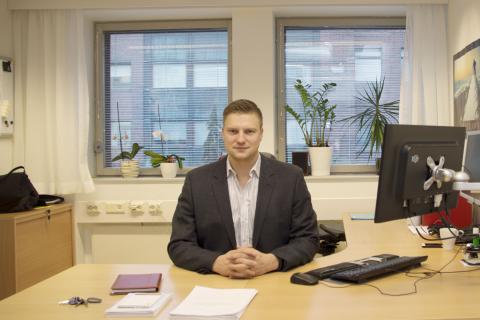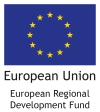The face behind the Audit Authority
Who is Roberts Jansons?
I am a nice and friendly person, who is honest and punctual. I give myself goals and I work to achieve them. I lead an active lifestyle and I like outdoor activities all-year-round. I work in a team which consists of auditors from each Member State from the programme area.
I have an international background: I studied finance in the US and after completing my bachelor’s degree, I was awarded an MBA from the Swiss Business School within the programme for international banking and finance.
What is your field of expertise?
Auditing with focus on EU funding programmes.
What does an Auditor do?
My role is two-fold: I verify and give assurance to the European Commission that the money entrusted to the programme is spent to achieve the promised results.
Moreover, with the support of the Group of Auditors (GoA), I verify that the money entrusted to projects is spent according to the programme manual which is based on national and European regulations. I also inform the programme management about the potential risks they face and how to avoid them.
How long have you been working in this position?
I have worked in this position over 5 years. Before that I have been working for the ministry of Environmental Protection and Regional Development of the Republic of Latvia, as a GoA member for the Central Baltic programme and four other ETC programmes.
What is your role in the Central Baltic Programme?
I am the face behind the audit authority; the audit authority is responsible for system audits and sample audits of projects. I mainly carry out system audits. I also analyse the results I receive from the Member States and I report them to the European Commission.
The audit authority is assisted by a GoA consisting of representatives for each partner state. They mainly carry out on-the-spot sample audits for projects and report results to me afterwards.
What does a normal day at the office looks like for you?
Behind my desk. The work is really well planned ahead and thus, when I come to the office in the morning, I know very well what I am going to do one year ahead.
What are the biggest challenges you and the GoA members face in your day-to-day activities?
Dealing with people that do not necessarily see us as friends. Sometimes they find it difficult to see that we all work for a common goal: supporting cross-border cooperation.
Any fun facts to share related to your job?
In the Auditor manual used during the previous programming period, the highest rating an auditor was able to give the system was: “The internal control works well, but some improvements are needed”. To me it seems quite funny that even if an auditor wanted to give a system the best possible grade, a ‘but’ was involved.
What about the new programming period?
They have changed it. Now I can just say it works well. No ‘but’.
What does an audit consists of?
As I mentioned, there are two types of audits:
-
A system audit consists of five stages: the planning, the execution, reporting, follow-up of recommendations and the audit closure.
-
The audit of operations refers to projects: the GoA member responsible for the project area in question lets the auditee know that he/she is coming. After the auditor has gone through all the invoices, he/she writes a report to the auditee, who has ten days to comment it, afterwards the report is approved and sent to the Audit Authority. The Audit Authority informs the Managing Authority about the deficiencies found during the on-the-spot audit. The necessary financial corrections are done by the Managing Authority. The projects to be audited are selected through a sampling method which is well-regulated by the European Commission.
Can you mention an example of a cost that was not eligible?
Usually we discover human related errors, nevertheless there are some cases of sub-contracting, procurement deficiencies or misuse of money for gaining a personal benefit.
Do you do project consultations?
The general principle is that the auditor should not consult with the auditee; such practice can cause conflict of interest or lack of objectivity towards the auditee. Each programme authority have strictly set tasks and responsibilities.



